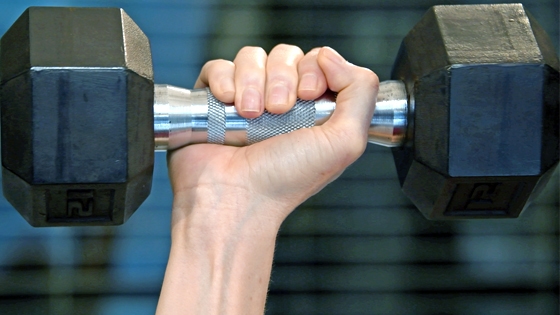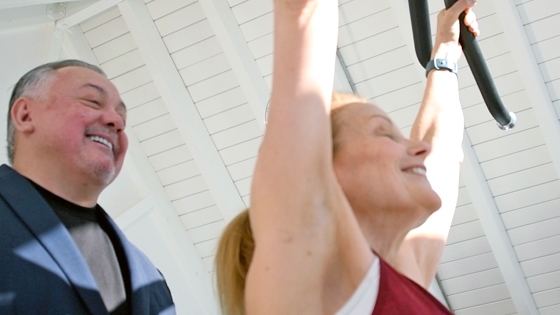In this article, we explore the importance of physical exercise and why it should be prioritized as part of a balanced lifestyle.
4 Key Benefits of Physical Exercise
The 4 key benefits of regular physical exercise are physical, mental, social and lifestyle.
Physical Health Benefits
Regular physical exercise is linked to numerous health benefits, including:
- Improved cardiovascular health: Exercise strengthens the heart and improves circulation, reducing the risk of heart disease, stroke, and high blood pressure.
- Weight management: Exercise helps control body weight by burning calories and increasing metabolism, contributing to weight loss and maintenance.

Exercise provides numerous benefits for muscle strength.
- Enhanced muscle strength and flexibility: Strength training and flexibility exercises help build and maintain muscle mass, improve joint mobility, and reduce the risk of injury.
- Better immune function: Regular exercise boosts the immune system, reducing the risk of infections and illness.
- Improved sleep quality: Exercise promotes better sleep by regulating sleep patterns and reducing stress, leading to improved energy levels and overall well-being.
Mental Health Benefits
Physical exercise has a profound impact on mental health and emotional well-being, including:
- Reduced stress and anxiety: Exercise triggers the release of endorphins, neurotransmitters that act as natural mood lifters, reducing stress and anxiety levels.
- Enhanced mood: Regular exercise is associated with improved mood and emotional stability, helping to alleviate symptoms of depression and promote feelings of happiness and well-being.
- Better cognitive function: Exercise has been shown to enhance cognitive function, memory, and concentration, reducing the risk of age-related cognitive decline and improving overall brain health.
- Increased self-esteem and confidence: Achieving fitness goals and experiencing the physical and mental benefits of exercise can boost self-esteem and confidence, leading to a more positive self-image and outlook on life.
Social Benefits
Exercise also offers social benefits by providing opportunities for social interaction and community engagement. Group exercise classes, team sports, and outdoor activities offer opportunities to connect with others, build relationships, and foster a sense of belonging and camaraderie.
- Increased Motivation and Accountability: Exercising with others can increase motivation and accountability, as individuals are more likely to adhere to their fitness goals when they have the support and encouragement of others. The social aspect of exercise provides a sense of accountability to show up and participate, leading to greater consistency and adherence to exercise routines.
- Enhanced Communication Skills: Participating in group activities or team sports can improve communication skills, teamwork, and cooperation. Working together towards a common goal encourages individuals to communicate effectively, resolve conflicts, and collaborate with others, fostering valuable social skills that extend beyond the gym or sports field.

Exercise fosters a sense of community by bringing people together.
- Sense of Community: Engaging in regular exercise within a community or group setting fosters a sense of belonging and camaraderie. Shared experiences, mutual encouragement, and support from peers create a supportive environment that enhances motivation, accountability, and enjoyment of physical activity.
- Positive Peer Influence: Exercising in a social setting exposes individuals to positive peer influence and healthy lifestyle behaviors. Being surrounded by others who prioritize their health and well-being can inspire individuals to adopt healthier habits, make positive lifestyle changes, and maintain long-term fitness goals.
- Reduced Feelings of Isolation: Regular physical activity and social interaction can help reduce feelings of loneliness and isolation, especially in individuals who may be at risk of social isolation due to factors such as age, disability, or lifestyle changes. Engaging in exercise within a supportive community provides opportunities for social connection and a sense of belonging, improving overall mental and emotional well-being.
Social support and encouragement from others can further motivate individuals to maintain an active lifestyle and achieve their fitness goals.
Lifestyle and Longevity Benefits
Regular physical exercise is a cornerstone of a healthy lifestyle and is associated with increased longevity and quality of life.
- Improved Physical Fitness: Regular exercise improves physical fitness, including strength, endurance, flexibility, and balance, enhancing overall functional ability and mobility. This allows individuals to perform daily tasks with greater ease and efficiency, leading to a more independent and active lifestyle.
- Better Sleep Quality: Engaging in regular exercise improves sleep quality and duration, leading to better overall health and well-being. Physical activity helps regulate sleep patterns, reduce insomnia, and promote deeper, more restful sleep, allowing individuals to wake up feeling refreshed and rejuvenated.
- Increased Energy Levels: Regular exercise boosts energy levels and reduces feelings of fatigue, leading to improved vitality and productivity throughout the day. Physical activity increases blood flow and oxygen delivery to the muscles and tissues, providing a natural energy boost and reducing the need for caffeine or stimulants.
- Reduced Risk of Chronic Diseases: Regular physical activity reduces the risk of chronic diseases such as heart disease, type 2 diabetes, certain cancers, and osteoporosis, leading to a longer and healthier life. Exercise helps control blood pressure, cholesterol levels, and blood sugar levels, while also strengthening the immune system and reducing inflammation.
By promoting overall health and well-being, exercise can help individuals live longer, healthier lives and reduce the risk of chronic diseases and health conditions associated with sedentary behavior.
You Can Experience Optimal Health
Physical exercise is essential for maintaining optimal health and well-being, offering a wide range of benefits for the body, mind, and spirit.
Whether it’s through cardiovascular workouts, strength training, yoga, or recreational activities, finding enjoyable and sustainable ways to incorporate regular exercise into daily life is key to reaping the many rewards it has to offer.
By prioritizing physical activity and making it a fundamental part of a balanced lifestyle, individuals can enjoy improved health, enhanced mood, increased vitality, and a greater overall sense of well-being.